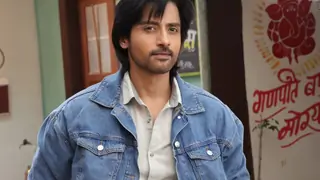Bollywood has undergone a sea change since its heydays. Audience has grown quality conscious and so have the film makers as well. But one aspect of Bollywood which has remained the same or has changed very little since its inception is its MUSIC. Our movies are incomplete without music. While the need of songs can be a matter of intense debate, it is a proven fact that good music adds to the USP of the movie and helps it to recoup its costs.
Technology causes creative disruption. Music industry was not left far behind. Music industry is an exception to the general rule that with advancement of technology, Industry prospers and marketplace expands'. Global music industry has been in declines since the early nineties and is now on the tenterhook just trying to keep itself intact and functioning.
The decade of nineties is regarded as a decade of stability worldwide when compared to other decades. It is regarded as the best one in United States. Even India started progressing very fast during the nineties.
The above long (and boring) lecture was to support and assert a claim. That content wise and sales wise, the decade of nineties was the best in Bollywood. Here are six reasons why the decade of 90s was the golden decade of Bollywood music:
For those who love statistics, the number speaks for themselves:
While the numbers might appear biased towards the nineties, one thing is clear, that the music industry was at its zenith during the nineties. In an excerpt from an interview, Mahesh Bhatt said that they had stopped counting the sales of Aashiqui' beyond 15 million copies. Yes a staggering 15 million copies was what Aashiqui' sold.
Not only Aashiqui' but other albums which managed to sell beyond the 10 million or 1 crore mark are Raja Hindustani', Dil to Pagal Hai', Kaho Naa...Pyaar Hai' and Hum Aapke Hain Kaun...!'. Even the sales of audio cassettes of other movies look healthy from an industry perspective.
We also had prolific singers like Kumar Sanu, Udit Narayan, Abhijeet Bhattacharya, Sonu Nigam as well as Alka Yagnik, Kavita Krishnamurthy, Asha Bhosle and Lata Mangeshkar during the nineties.
Music was melodious and suited the audience's taste:
In one of their interviews, Nadeem-Shravan said that they had brought back zankaar and orchestra to Hindi music. After the eighties (which is considered by film pundits as Dark Age of Bollywood), Bollywood returned to a romantic mode and the music of that time just supported this fact.
Post 2005, Bollywood music increasingly became concentrated towards a particular singer, singing trend or style. However in the nineties we had many lead singers who were leading the trend simultaneously be it Udit Narayan, Kumar Sanu, Abhijeet Bhattacharya or Sonu Nigam.
Nineties was all about romance and the music just complemented it. There are many songs from the nineties that still fill the 1s and 0s of your storage and are the most played songs in your playlists.
Indipop:
Lucky Ali , Alisha Chinai, Colonial Cousins, Ali Haider, Silk Route, Sonu Nigam, Falguni Pathak, Nusrat Fateh Ali Khan, Euphoria , Bali Brahmabhatt, Raageshwari, Bombay Vikings and many more - these names were not just one album wonders but released many successful albums during the period of mid-nineties to 2003 or so.
Typical characteristic of Indipop songs were that they offered a new kind of music as well as melody at the same time. Pick up any random song of the above artists and the music is just soul stirring.
With the gradual decline of music industry starting 2004 onwards, Indipop quickly faded into a minority. Be it a co-incidence or the peculiarity of that period, nineties was the period when Indipop rose and was at its peak.
Emphasis was also on lyrics:
Lyrics are integral to the music of movies. Without proper lyrics, songs remain lifeless. While the decade of nineties had its fair share of crude and double meaning songs, majority songs were simple in lyrics. Simplicity is quite important in poetry, especially in movie songs. Lyricists like Sameer, Javed Akhtar, Nida Fazli etc. wrote some of their memorable songs during the nineties.
An important reason for Aashiqui' being the best seller album of all times is attributed to its lyrics. Sameer, lyricist of Aashiqui', in one of his interviews attributed this to the simplicity of lyrics.
Listen to the songs of Sadak', Aashiqui', Deewana' and you will notice this. Songs of today too have good lyrics, but their recall value is not as good as it used to be in nineties. (not everyone might agree on this)
A decade of stability:
Nobel laureate Joseph Stiglitz has rightly called the decade of nineties as the most prosperous and stable decade in his book The Roaring Nineties: A New History of the World's Most Prosperous Decade'. The scenario, though not so merry in India was somewhat the same. Some of the movies post 1994 (the first four years being somewhat tumultuous) which show a shift towards joint families and NRI trend is a proof of this trend.
The music of this time therefore complements this trend by being mostly romantic and less revolting. What comes out therefore is a mix of melody and soft instruments. Counter to this trend, music in the mid-2000s trends to be completely opposing to the trend of melody by being heavy on loud instruments etc.
Nineties was a decade of innocence:
National Geographic called the decade of nineties as the last decade of innocence. Though it was in context of United States, same is applicable to the Indian scene as well. Pick up any of the movie right from Swarg' (one of the first major release in 1990) to Kaho Naa... Pyaar Hai' (it released in 2000 but was made in the 90s), you will guess it indirectly. While the movies might sound over-dramatic and unnecessary by today's standard of cinema, but innocence is something that will never get out dated.
Some of the songs like Waada raha sanam' from Khiladi' (1992), Pehla nasha' from Jo Jeeta Wohi Sikandar' (1992), Hoshwalon ko khabar kya' Sarfarosh' (1999) and majority of Indi pop videos available on YouTube reflect this to a certain extent. The plot of most of the movies was middle class which most of the Indians at that time could relate to (but a more grounded' middle class). Rural life was still then a part of the movies.
Today's music is a mix of all the above elements but specific to none, therefore it is right to conclude that nineties was the Golden decade of Bollywood music. What are your thoughts?






























3